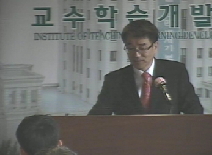Over the past few decades, Korean-owned companies have greatly expanded their operations overseas, especially in Latin America and Southeast Asia. One issue that has occasionally arisen as part of this outward expansion is the occurrence of abusive la...
http://chineseinput.net/에서 pinyin(병음)방식으로 중국어를 변환할 수 있습니다.
변환된 중국어를 복사하여 사용하시면 됩니다.
- 中文 을 입력하시려면 zhongwen을 입력하시고 space를누르시면됩니다.
- 北京 을 입력하시려면 beijing을 입력하시고 space를 누르시면 됩니다.

Addressing Labor Rights Abuses at Overseas Korean Companies: The Role of the Korean State = Addressing Labor Rights Abuses at Overseas Korean Companies: The Role of the Korean State
한글로보기https://www.riss.kr/link?id=A100824216
-
저자
( Andrew Wolman ) (한국외국어대학교)
- 발행기관
- 학술지명
- 권호사항
-
발행연도
2010
-
작성언어
-
- 주제어
-
KDC
300
-
등재정보
KCI등재후보
-
자료형태
학술저널
-
수록면
173-200(28쪽)
-
KCI 피인용횟수
0
- DOI식별코드
- 제공처
-
0
상세조회 -
0
다운로드
부가정보
다국어 초록 (Multilingual Abstract)
Over the past few decades, Korean-owned companies have greatly expanded their operations overseas, especially in Latin America and Southeast Asia. One issue that has occasionally arisen as part of this outward expansion is the occurrence of abusive labor practices by Korean employers overseas. Overseas labor rights violations are one of the most difficult types of human rights problems to address, as oftentimes the host state lacks adequate legal mechanisms to address the violation, and international law does not directly regulate multinational corporations. Thus, many believe that the corporation’s home state should play a role in addressing overseas labor rights issues. This article analyzes the reaction of the Korean government to such overseas labor abuses by Korean companies. It describes current extraterritorial laws that can be used to curb labor abuses, as well as the steps taken by the Korean government in promoting corporate social responsibility, managing the OECD Guidelines for Multinational Enterprises, educating overseas corporations in good labor practices, and assisting in resolving overseas labor disputes. It concludes with recommendations on additional steps the government can do more to reduce overseas labor abuses.
참고문헌 (Reference)
1 Christen Broecker, "“Better the Devil You Know”: Home State Approaches to Transnational Corporate Accountability" 41 : 159-161, 2008
2 Kurt Peterson, "Zones of Exploitation: Korean Investment in Guatemala" 14 (14): 1992
3 Jonathan I. Charney, "Transnational Corporations and Developing Public International Law" DUKE L. J 748-753, 1983
4 Young-Keun Chung, "The Korean National Strategy for Sustainable Development" A Background Report 2006
5 Alan Hyde, "The International Labor Organization in the Stag Hunt for Global Labor Rights" 3 : 153-158, 2009
6 Dae Won Choi, "The Globalization of Korean Industry: Korean Maquiladoras in Mexico" 9 (9): 9-, 1997
7 Hugh King, "The Extraterritorial Human Rights Obligations of States" 9 : 521-, 2009
8 Sanghoon Ahn, "The Economic Impact of Outbound FDI and Trade: The Case of Korea, paper presented at OECD Workshop on the Globalisation of Production: Impacts on Employment" Productivity and Economic Growth 2005
9 Federation of Korean Industries, "The Charter of Business Ethics"
10 Korea Development Bank, "Social Responsibility"
1 Christen Broecker, "“Better the Devil You Know”: Home State Approaches to Transnational Corporate Accountability" 41 : 159-161, 2008
2 Kurt Peterson, "Zones of Exploitation: Korean Investment in Guatemala" 14 (14): 1992
3 Jonathan I. Charney, "Transnational Corporations and Developing Public International Law" DUKE L. J 748-753, 1983
4 Young-Keun Chung, "The Korean National Strategy for Sustainable Development" A Background Report 2006
5 Alan Hyde, "The International Labor Organization in the Stag Hunt for Global Labor Rights" 3 : 153-158, 2009
6 Dae Won Choi, "The Globalization of Korean Industry: Korean Maquiladoras in Mexico" 9 (9): 9-, 1997
7 Hugh King, "The Extraterritorial Human Rights Obligations of States" 9 : 521-, 2009
8 Sanghoon Ahn, "The Economic Impact of Outbound FDI and Trade: The Case of Korea, paper presented at OECD Workshop on the Globalisation of Production: Impacts on Employment" Productivity and Economic Growth 2005
9 Federation of Korean Industries, "The Charter of Business Ethics"
10 Korea Development Bank, "Social Responsibility"
11 World Wildlife Fund, "Shaping the Future of Sustainable Finance"
12 CSR Weltweit, "Republic of Korea"
13 Sorcha MacLeod, "Reconciling Regulatory Approaches to Corporate Social Responsibility: The European Union, OECD and United Nations Compared" 13 : 671-, 2007
14 Lavanga V. Wijekoon, "Litigating Labor Rights Across a Demilitarized Zone: The South Korean Constitutional Court as a Forum to Address Labor Violations in North Korea’s Kaesong Special Economic Zone" 17 : 265-284, 2008
15 Daniel C.K. Chow, "Limiting Erie in a New Age of International Law: Toward a Federal Common Law of International Choice of Law" 74 : 165-193, 1988
16 Dan Biers, "Labor Complaints Could Prompt International Strife for Korea" 1996
17 Jong Bum Kim, "Korean Implementation of the OECD Anti-Bribery Convention: Implications for Global Efforts to Fight Corruption" 17 : 245-, 2000
18 Simon Phillips, "Is Mexico a Frontier for Korea"
19 Carlos M. Vázquez, "Indirect Obligations of Corporations Under International Law" 43 : 927-930, 2005
20 Int’l Labour, "ILO Declaration on Fundamental Principles and Rights at Work"
21 Lisa G. Baltazar, "Government Sanctions and Private Initiatives: Striking a New Balance for U.S. Enforcement of Internationally-Recognized Workers’ Rights" 29 : 687-690, 1998
22 Faith Stevelman, "Globalization and Corporate Social Responsibility: Challenges for the Academy, Future Lawyers, and Corporate Law" 53 : 817-828, 2008
23 Marko Milanovic, "From Compromise to Principle: Clarifying the Concept of State Jurisdiction in Human Rights Treaties" 8 : 411-, 2008
24 Joseph Seon Hur, "Extraterritorial Application of Korean Competition Law" 6 : 171-, 2008
25 Virginia Mantouvalou, "Extending Judicial Control in International Law: Human Rights Treaties and Extraterritoriality" 9 : 147-, 2005
26 Michael Hopkins, "Corporate Social Responsibility: An Issues Paper, International Labour Office" 3-, 2004
27 Anita Chan, "Corporate Social Responsibility and Missing Links—Vietnam and China Compared" University of Michigan 21-22, 2003
28 Seungho Choi, "Corporate Social Responsibility Dynamics in South Korea and Japan: A Comparative Analysis 10"
29 Doreen McBarnet, "Corporate Social Responsibility Beyond Law, Through Law, for Law: The New Corporate Accountability, in THE NEW CORPORATE ACCOUNTABILITY: CORPORATE SOCIAL RESPONSIBILITY AND THE LAW" 2007
30 Sarah Altschuller, "Corporate Social Responsibility" 43 : 577-586, 2009
31 Angela Joo-Hyun Kang, "Corporate Responsibility in Northeast Asia—South Korea" EEWG 2009
32 Jernej Cernic, "Corporate Responsibility for Human Rights: A Critical Analysis of the OECD Guidelines for Multinational Enterprises" 3 : 71-78, 2008
33 Jan Wouters, "Corporate Human Rights Responsibility: A European Perspective" 6 (6): 12-20, 2008
34 Emeka Duruigbo, "Corporate Accountability and Liability for International Human Rights Abuses: Recent Changes and Recurrent Challenges" 6 : 222-240, 2008
35 David Bigge, "Bring on the Bluewash: A Social Constrctivist Argument Against Using Nike v. Kasky to Attack the UN Global Compact" 14 : 6-, 2004
36 Gare Smith, "An Introduction to Corporate Social Responsibility in the Extractive Industries" 11 : 1-2, 2008
동일학술지(권/호) 다른 논문
-
Korean Antitrust for Proof of Price-Fixing: Comparative Analysis with the U.S. Antitrust
- 서울대학교 아시아태평양법연구소
- ( Chang Su Choe )
- 2010
- KCI등재후보
-
Legal Writing Programs in Korean Law Schools: Possible Structures and Resources
- 서울대학교 아시아태평양법연구소
- ( Jo Ellen D. Lewis )
- 2010
- KCI등재후보
-
- 서울대학교 아시아태평양법연구소
- ( Young Hee Shim )
- 2010
- KCI등재후보
-
Cultural Values and the Korean Negotiator
- 서울대학교 아시아태평양법연구소
- ( Haksoo Ko )
- 2010
- KCI등재후보
분석정보
인용정보 인용지수 설명보기
학술지 이력
| 연월일 | 이력구분 | 이력상세 | 등재구분 |
|---|---|---|---|
| 2025 | 평가예정 | 재인증평가 신청대상 (재인증) | |
| 2022-01-01 | 평가 | 등재학술지 선정 (계속평가) |  |
| 2021-12-01 | 평가 | 등재후보로 하락 (재인증) |  |
| 2018-01-01 | 평가 | 등재학술지 유지 (계속평가) |  |
| 2015-01-01 | 평가 | 등재학술지 선정 (계속평가) |  |
| 2013-01-01 | 평가 | 등재후보학술지 유지 (기타) |  |
| 2012-01-01 | 평가 | 등재후보학술지 유지 (기타) |  |
| 2011-01-01 | 평가 | 등재후보학술지 유지 (등재후보1차) |  |
| 2009-01-01 | 평가 | 등재후보학술지 선정 (신규평가) |  |
학술지 인용정보
| 기준연도 | WOS-KCI 통합IF(2년) | KCIF(2년) | KCIF(3년) |
|---|---|---|---|
| 2016 | 0.04 | 0.04 | 0.12 |
| KCIF(4년) | KCIF(5년) | 중심성지수(3년) | 즉시성지수 |
| 0.1 | 0.08 | 0.407 | 0 |




 KCI
KCI KISS
KISS






